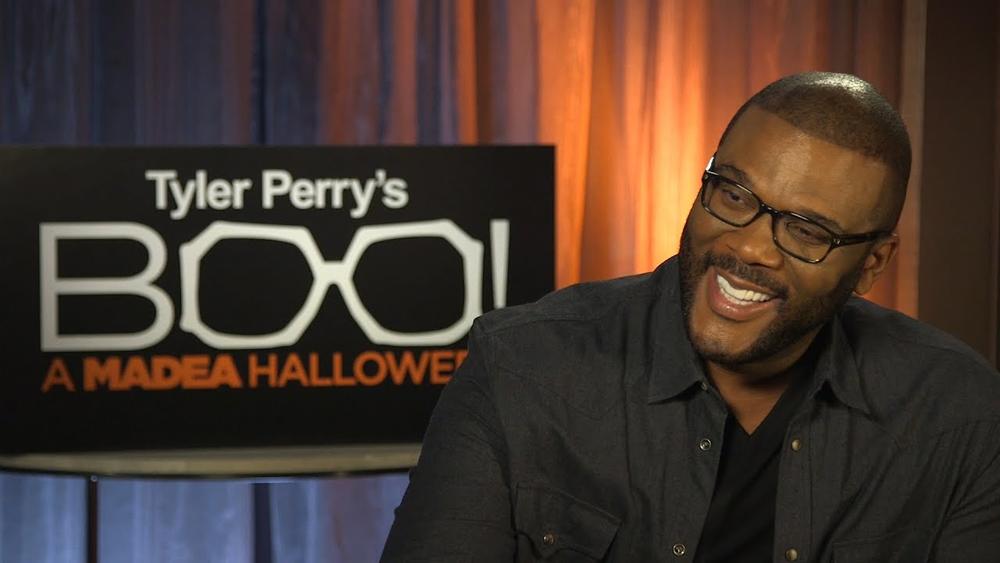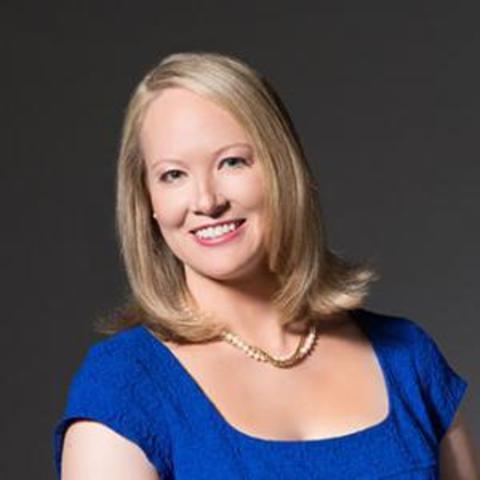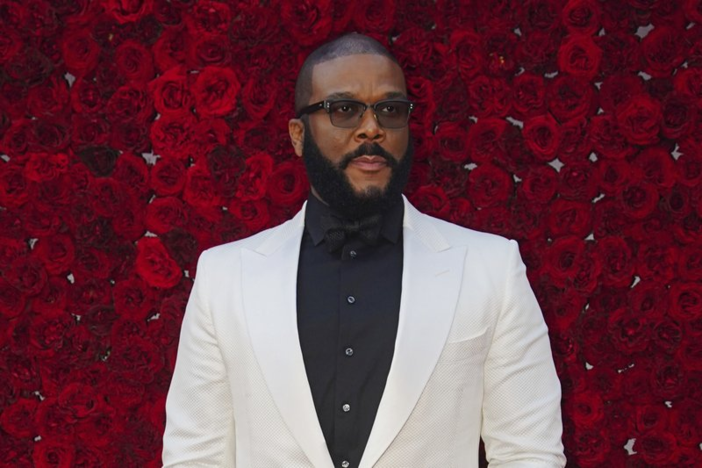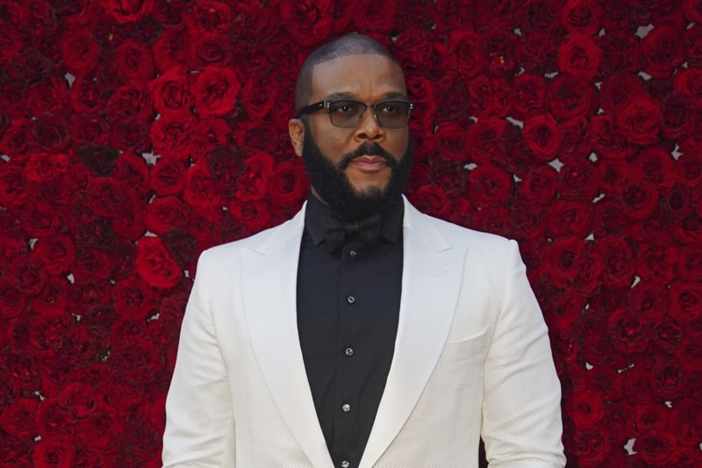Section Branding
Header Content
Behind The 'Screams' Of Tyler Perry's Madea Halloween Movie
Primary Content
Atlanta-based director and actor Tyler Perry is prolific in stage, television and big-screen projects.
Many are produced at Tyler Perry Studios at Atlanta's former Fort MacPherson.
I sat down with Perry to discuss his latest film "Boo! A Madea Halloween."
Rickey Bevington talks to Tyler Perry about his new movie "Boo! A Madea Halloween."
Rickey Bevington: Tyler Perry, thank you for joining me.
Tyler Perry: Thank you for having me here Rickey. I appreciate it very much. This is very NPR (laughs).
Bevington: (laughs in response) Improv is a big part of your process on set for the layperson. Can you talk about the difference between shooting a movie scene and shooting an improv?
Perry: Shooting a movie scene is scripted word for word. You know exactly what you're going to say and exactly where it's going at any moment. The improv scenes [are] scripted but I allow the freedom to just let it roll. Some of the funniest things came up out of just letting the camera roll when we're just talking off the top of our head. Like a “hoe-01(k).” Those moments were really, really good. (laughs)
Bevington: (laughs) Well, for our adult audience, san you please explain the scene?
Perry: (in character as Madea) A “hoe-01(k)” is very simple. This is for the adult audience. A “hoe-01(k)” is very simple. It's for all those women who didn't pay taxes because they was hoes and they had this secret money on the side. So I have a “hoe-01” retirement plan.
(in normal voice) So that basically is for people who - and it could be guys too - who didn't pay taxes on their money and they put it aside, it’s called a “hoe-01(k),” it’s a Madea-ism.
Bevington: Only Madea. (laughs)
Perry: Only Madea has a “hoe-01(k).” (laughs)
Bevington: Not everybody on set was a formally trained film actor. What was it like working with performers who aren’t just film actors?
Perry: Those kids were great. You’re talking about the YouTube and social media influencers. You’ve got Yousef Erakat who has, I don't know, 40-50 million views combined on YouTube and you've got Lexi Panterra who was twerking and that’s 68 million views. I want it to [go to] a younger audience because my audience is growing older so I wanted to invite a younger audience to get familiar with Madea as well. So I thought, you know what better way to do it?
Bevington: Georgia has a very generous film tax credit. How big a part of your decision to put down roots here is attributed to that?
Perry: I came before it. The very first tax credit that was given was given to me from "House of Payne" because I was just determined that this was home for me. This is where I was going to be. And when the tax credit started, and all this other production started coming I thought “Oh my gosh this is amazing!” What it has afforded and it allowed me to do is not only buy Fort McPherson, but also to create thousands of jobs in a neighborhood in southwest Atlanta that, once the base left, it took all of the income with it out of the neighborhood and left it pretty destitute.
So to have this moment to generate all of this income and help all of these people make income for themselves and train people in the neighborhood, it's all because of the tax credit it's amazing.
Bevington: So you've done so many different types of projects. What is a kind of project that you would like to work on in a future that would be new for you, a new challenge?
Perry: I'm pretty content with where I am and what I'm doing. But you know I'd like to work with other directors like David Fincher and Steven Spielberg and just in the right capacity in the right moments, I would love to do some them some things outside of my own work. But what I learned very early on is that you say you've got to be in the hands of the right director.
Secondary Content
Bottom Content




